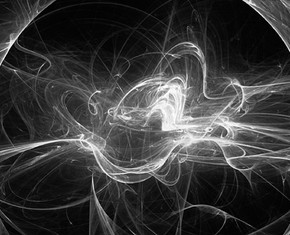The views expressed in our content reflect individual perspectives and do not represent the authoritative views of the Baha'i Faith.
Why do people still hold superstitious beliefs in our scientific age? Research studies show that those kinds of beliefs can create an illusory sense of control, which may relieve or reduce anxiety and fear.
During major life-threatening crises superstitious thoughts tend to increase, partly as a means of psychological self-defense against harm.
For example, during Europe’s Black Death – history’s largest recorded pandemic, which killed an estimated 200 million people in the mid-1300s – people blamed earthquakes, astrological forces, and even the poisoning of wells by the Jewish population, which suffered many unjust persecutions and deaths as a result. Others maintained that the wrath of God was inflicting a severe punishment on the world. Obviously, we now know that the plague, a bacterial illness, was spread by flea-borne and aerosolized disease vectors.
RELATED: Spiritual Birth: What Being Born Again Really Means
Despite the rise of science since the Middle Ages, it may still be the case that some people utilize various forms of superstition, such as fantasy, as a buffer to reduce the stress of facing painful experiences and fears. For example, during the COVID-19 pandemic widespread uncertainty, hopelessness, and physical and emotional isolation have fueled the rise of diverse psychological defense mechanisms, many of which have been detrimental to the well-being of society – and have even resulted in a larger death toll in some places.
The Baha’i teachings ask each human being to independently investigate the truth, accept legitimate science, and renounce our “particular prejudices and superstitions,” as in this address Abdu’l-Baha gave in Paris early in the 20th century:
… it is imperative that we should renounce our own particular prejudices and superstitions if we earnestly desire to seek the truth. Unless we make a distinction in our minds between dogma, superstition and prejudice on the one hand, and truth on the other, we cannot succeed. When we are in earnest in our search of anything we look for it everywhere. This principle we must carry out in our search for truth.
But during any major catastrophic event conspiracy theories and misinformation aimed at influencing the minds of people tend to run rampant. Typically, no evidence-based, logical proofs back up these theories, yet they can spread rapidly at a time when a life-threatening calamity like COVID-19 threatens millions. Instead of making efforts to generate compassion, empathy and unity, as well as to follow expert scientists’ guidelines for prevention and treatment, such behavior adds to fear. This is especially the case when rising numbers of people are being afflicted and high mortality results.
Conspiracy theories and misinterpretations like these can lead to dangerous consequences. They hamper the deployment of scientific discoveries that can save lives, and seriously undermine progress in overcoming catastrophic events. Abdu’l-Baha, commenting on such phenomena in a talk he gave in Philadelphia in 1912, said “Superstitions have obscured the fundamental reality, the world is darkened and the light of religion is not apparent. This darkness is conducive to differences and dissensions.”
With respect to science itself, even that bastion of knowledge is under attack in the current toxic climate. On September 17, 2021, Victor D. Hanson, a historian and conservative American commentator for The New York Times, wrote:
The scientific method used to govern much of popular American thinking. In empirical fashion, scientists advised us to examine evidence and data and then by induction come to rational hypotheses. The enemies of science were politics, superstition, bias and deduction. Yet we are now returning to our version of medieval alchemy and astrology in rejecting a millennium of the scientific method …
RELATED: Why We Can’t Forget the Pandemic’s Hard-Earned Lessons
Of course, researchers do understand that superstitions are part of our adaptive behavior, as we struggle to make sense of an uncertain world. Their research has shown that many people choose superstition with the hope that it will help them avert any harm which may strike them. The Baha’i teachings ask us to avoid falling into the trap of superstition – even including believing in any religious claim that contravenes science. Abdu’l-Baha said:
Any religious belief which is not conformable with scientific proof and investigation is superstition, for true science is reason and reality, and religion is essentially reality and pure reason; therefore, the two must correspond. Religious teaching which is at variance with science and reason is human invention and imagination unworthy of acceptance.
To eliminate superstition and the spread of misinformation, education that emphasizes the vital necessity of the harmony between spiritual reality and scientific knowledge is required. Purely secular education alone will not achieve this purpose. The Baha’i teachings, which condemn all forms of superstition and prejudice are quite explicit in this regard:
If religious beliefs and opinions are found contrary to the standards of science they are mere superstitions and imaginations; for the antithesis of knowledge is ignorance, and the child of ignorance is superstition. Unquestionably, there must be agreement between true religion and science.
















Comments
Sign in or create an account
Continue with Googleor